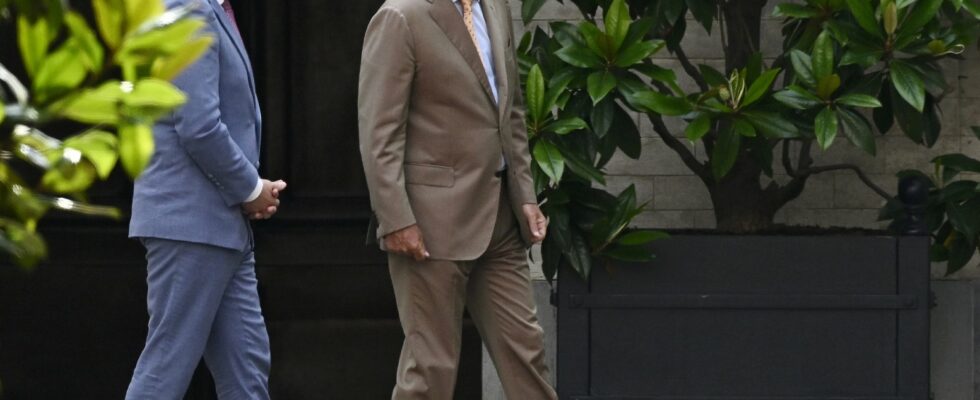Some will readily see a parallel with the political deadlock in France: a first round of negotiations, launched on July 10 with a view to forming a government in Belgium, failed two months after the legislative elections, but discussions are due to resume this Friday, August 23.
Bart De Wever, leader of the Flemish conservative party (N-VA), has handed over his mandate as chief negotiator to King Philippe, who had entrusted it to him in July, acknowledging the failure of his talks with four other Belgian parties then ready to form a government coalition, the Royal Palace announced on Thursday evening. The Belgian king had appointed him “formateur”, a role attributed to the man who is generally expected to become Prime Minister.
Five Flemish and Walloon parties had agreed to try to form a coalition, following the June elections. King Philippe will begin new consultations on Friday “with the presidents of the five parties involved in the negotiations for the formation of a new government”, the Royal Palace said in a statement.
These first talks, which began in July, have stumbled over fiscal issues, with the French-speaking liberals rejecting a proposal for a capital gains tax, defended by the Flemish socialists. Belgium, with a public deficit of 4.4% of its gross domestic product (GDP), is one of seven European countries facing proceedings for violating the eurozone’s budgetary rules.
Future government
Around the N-VA, four partners had agreed in July to discuss a future government. These are the liberals of the Reform Movement (MR), the centrist party Les Engagés and, on the Dutch-speaking side, the Christian Democrats (CD & V) and Vooruit, the former Flemish Socialist Party, the only left-wing partner. These five parties together represent a majority of 81 of the 150 seats in the Belgian Chamber of Deputies.
After the consultations with King Philippe, another negotiator, who could be Bart De Wever himself, should in principle be appointed to resume the negotiations. These could last several more weeks, as is usually the case in this kingdom.
Reputedly ungovernable, Belgium had lived 541 days without a fully functioning government in 2010-2011. A record from which the country was not so far when the coalition of seven parties led by the current Prime Minister Alexander De Croo finally saw the light of day in the fall of 2020, 493 days after the 2019 elections.
The vote of 9 June – concurrent with the European elections – was marked by a victory for the right and the centre-right, with an unprecedented alignment of Wallonia (French-speaking south) with Flanders (Dutch-speaking north) where the right is traditionally in the majority. This resulted in the seven-party coalition led by Alexander De Croo losing its majority. This coalition relied heavily on the French-speaking left. The outgoing Prime Minister was tasked with managing current affairs until his successor is appointed. In Belgium, the N-VA was already associated with power between 2014 and 2018, but the post of Prime Minister has never gone to a representative of this party, which calls itself “nationalist” and demands “a maximum degree of autonomy” for the Flanders and Wallonia regions so that they can pursue “a policy that is tailored to their own community”.
